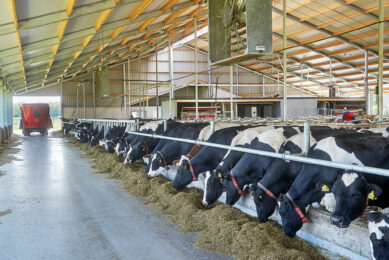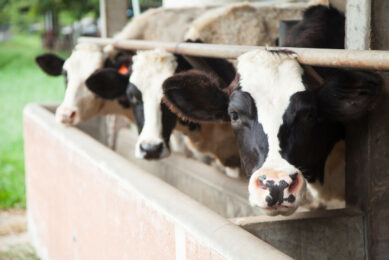FDA: millions for food and feed safety
The US Food and Drug Administration announced the awarding of 17 grants to enhance food and feed safety. These grants fund major cooperative agreements in four major areas. The FDA awarded a combined $5.2 million in these one-year grants to various state and local regulatory agencies.
“These cooperative agreements support and enhance local food protection
efforts consistent with our Food Protection Plan,” said Michael Chappell, the
FDA’s acting associate commissioner for regulatory affairs. “The grants
represent an important step in the FDA¹s continued efforts to integrate and
improve the effectiveness of food safety systems at the federal, state and local
levels.”
Prevention: Ruminant Feed Ban Support Program The cooperative
agreements for the Ruminant Feed Ban Support Program further enhance the
infrastructure of state, territorial, and tribal animal feed safety and bovine
spongiform encephalopathy (BSE) prevention programs. Under these cooperative
agreements, state, territory, and tribal governments will enhance their feed/BSE
safety programs to increase the ability to locate and visit companies involved
in the manufacture, distribution, and transportation of animal feed as well as
operations feeding ruminant animals, and to verify their compliance with the
BSE/ruminant feed ban.
Funds may also be used to conduct educational
outreach activities and to develop materials needed to further enhance the
industries’ knowledge of and compliance with the BSE/ruminant feed ban. The
awards were up to $250,000 and the states receiving them were Iowa, Mississippi,
North Carolina and Washington.
Intervention: Food Safety and
Security Monitoring
The grants for Food Safety and Security
Monitoring provide funding to Food Emergency Response Network chemistry
laboratories, laboratories essential to intervention efforts. The grants may be
used for facility upgrades, training in current food testing methodologies, and
increased laboratory sample analysis capacity, among other activities. In the
event of a large-scale chemical terrorism event affecting food or food products,
the recipient may be required to perform selected chemical analyses of food
samples collected by the FDA or provided by other government agencies through
the FDA. The states receiving these grants were Colorado, California and Ohio
and were given up to $350,000.
Intervention: Innovative Food
Defense
The Innovative Food Defense grants will generate novel
solutions and outreach to address gaps in, or provide enhancement to, food
defense nationwide — for example, implementing the food defense programs in
food establishments called the Assure, Look, Employees, Reports, and Threat or
ALERT, and Employees Follow, Inspect, Recognize, Secure, and Tell or
FIRST.











